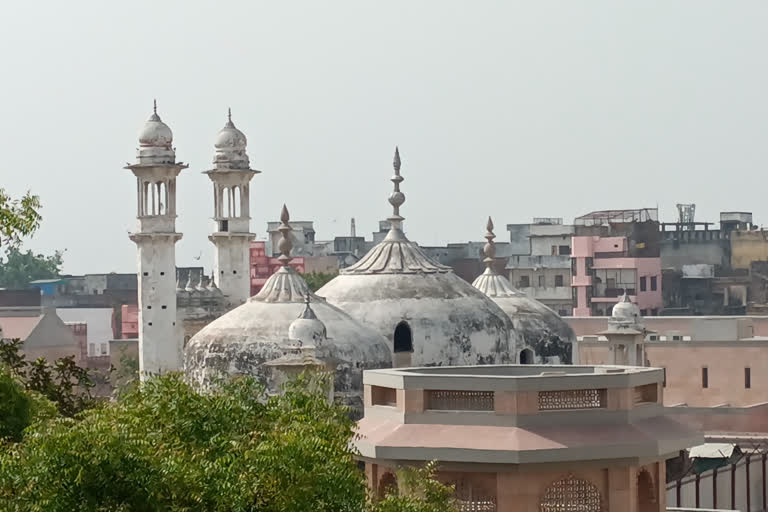Varanasi: A district court in Uttar Pradesh hearing the Gyanvapi mosque-Shringar Gauri complex case on Wednesday reserved its judgment on the matter till September 12. Both the Hindu and Muslim sides have completed their respective arguments in the case. The hearing began with the defendants presenting their side, as Advocate Shamim Ahmed, who represented the Anjuman Intezamia Masjid Committee, noted that the Gyanvapi mosque was a property belonging to the Waqf Board.
Stating that the land was granted in 1669 to the Waqf board by Mughal Emperor Aurangzeb, on which the mosque was constructed later, Ahmed added that in 1992, a part of the mosque complex was turned into a police control room after an agreement between the Uttar Pradesh government and the Waqf board.
At the time of the construction of the Kashi Vishwanath corridor, the state government took some land of the Gyanvapi mosque and provided land at another place in lieu of it, he said, adding that this signified that the mosque was a property of the waqf board. Representing the Hindu side, Advocate Madan Mohan Yadav said that the lawyers representing the board displayed documents related to a separate mosque named Alamgir Mosque.
Advocate Vishnu Shankar Jain, representing the Plaintiff, rubbished the claim of the Defendants and said the website of Minority Affairs Ministry did not mention anywhere that the mosque belonged to the Waqf board. He further stated that a counter-reply would be filed with regard to this.
"Today in India, when there is the rule of 'sanatani' people, the mosques that were built after demolishing temples should be handed over to the 'sanatani' people," Advocate Yadav said. The row began after a group of people claimed that a Shivling had been located inside the Gyanvapi mosque complex during a videography survey.



